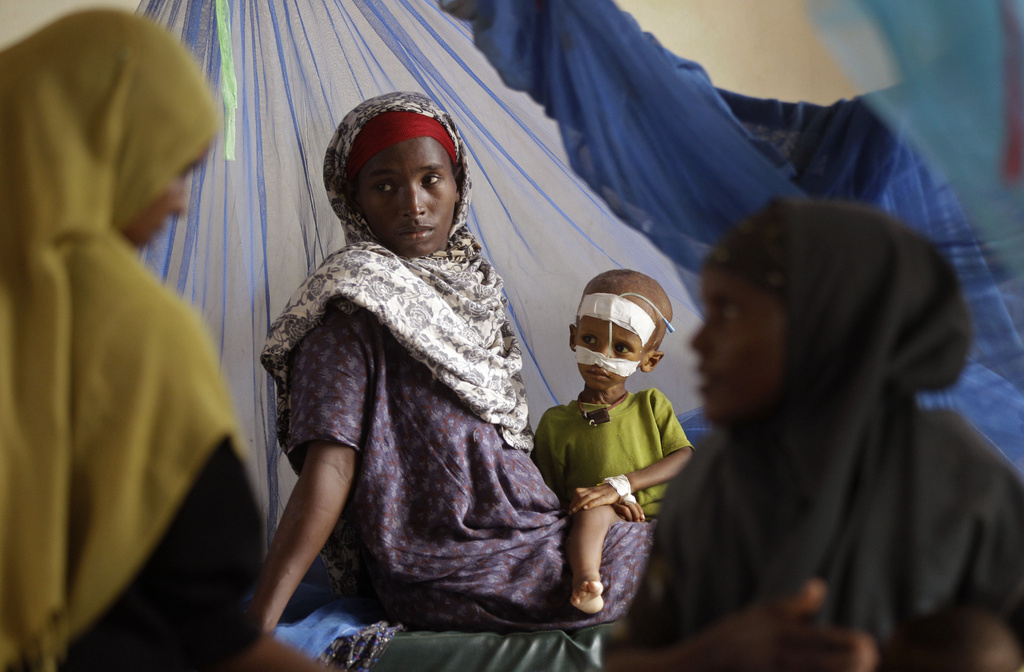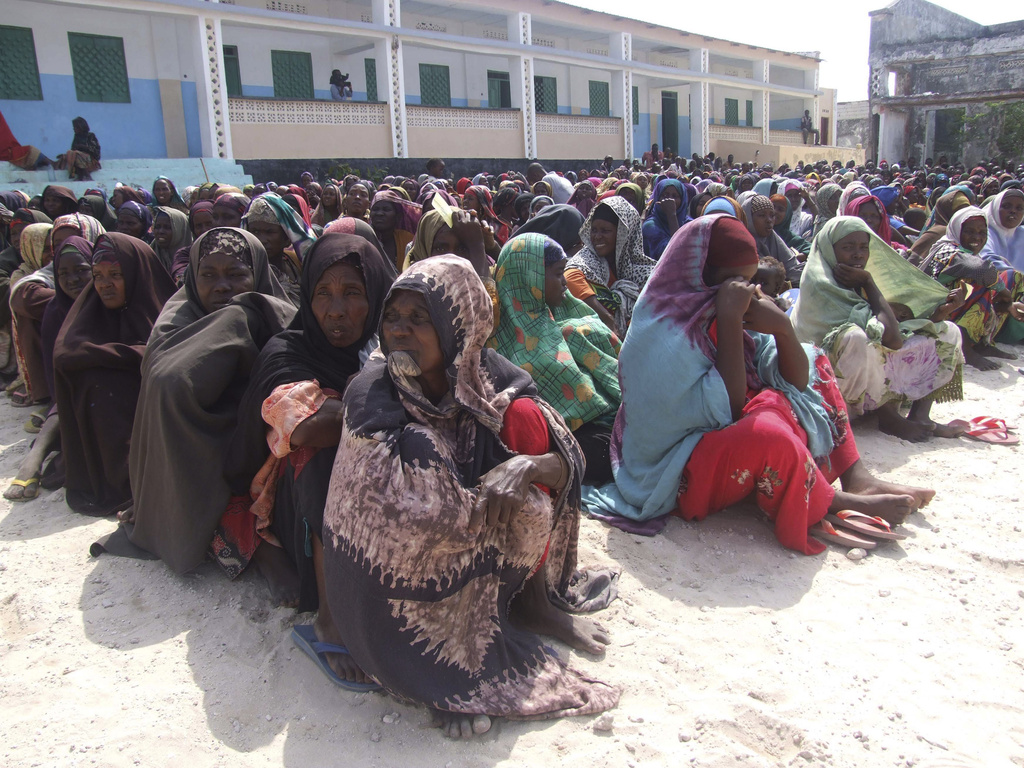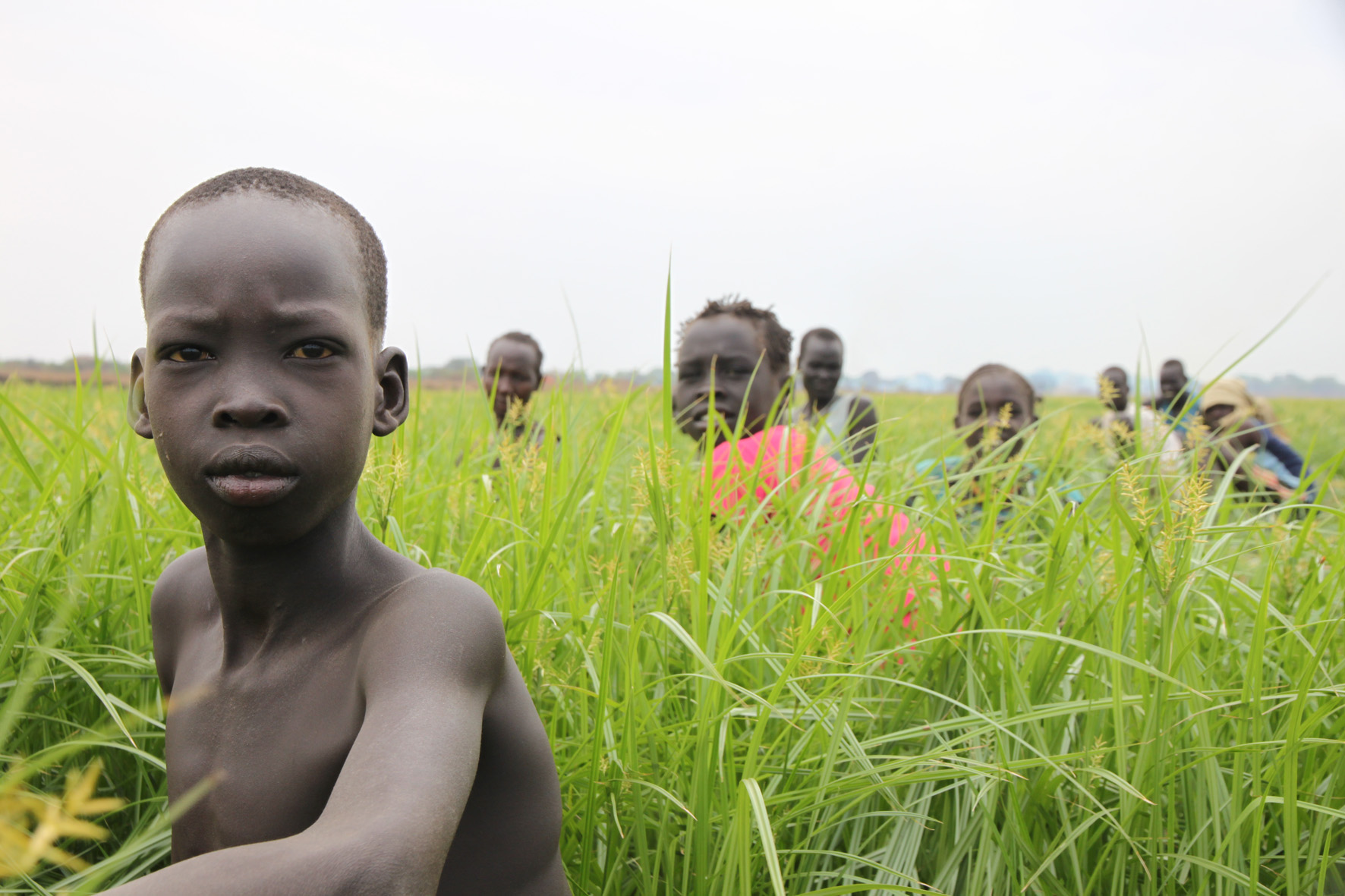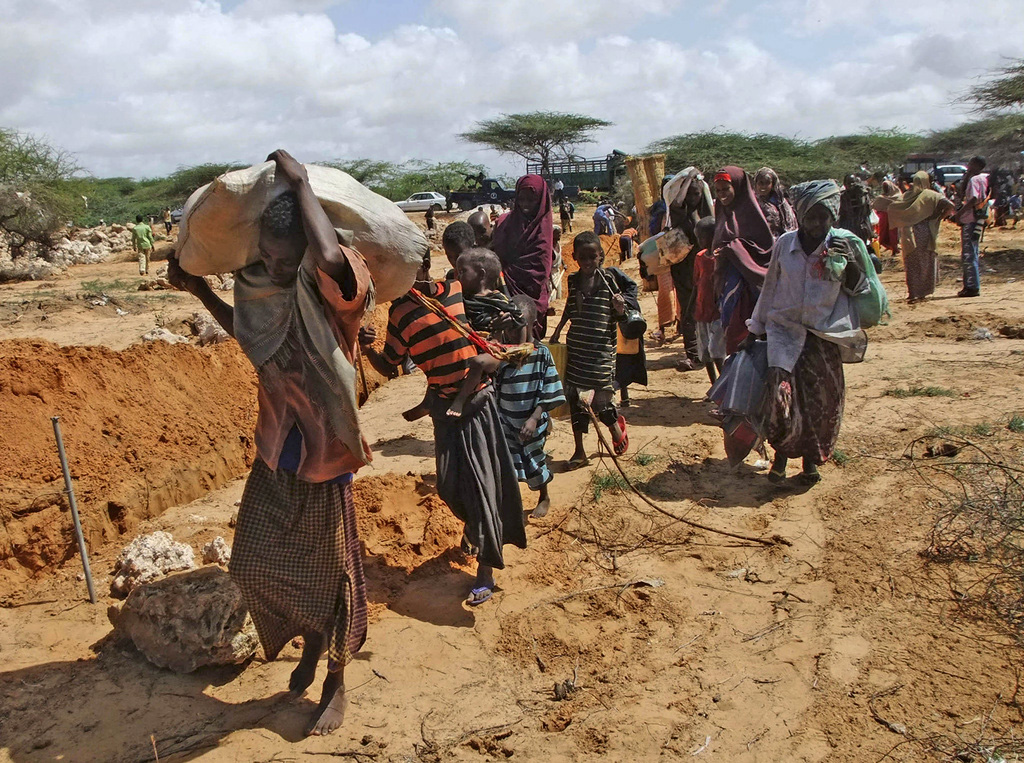Swiss aid to eastern Africa faces hurdles

The worst drought in six decades is threatening the lives of about 12 million people, including two million children, in the Horn of Africa.
Swiss aid agencies and charities have released extra funds for victims in the region. Two organisations have also been involved in long-term projects for decades, providing food and running a clinic and schools in the hardest-hit region of Somalia.
A major humanitarian operation by the international community was launched last Wednesday to airlift food to the Somali capital Mogadishu and help alleviate the famine in Kenya, Somalia and Ethiopia.
The United Nations Children’s Fund (Unicef) estimates that in some regions of Somalia every six minutes a child dies of starvation.
“We have provided food for about 100,000 children in 800 centres over the first six months of this year,” said Andrea Kippe of the Swiss branch of Unicef.
She estimates the overall number of starving at about one million people in Somalia.
Food, water and education
Unicef Switzerland plans to increase aid to the hardest-hit regions in southern Somalia in the coming months and hopes to provide for up to 75,000 children.
In the first instance exhausted children are fed through the nose with a solution of sugar and salt. Later they are given an easily digestible type of milk and peanut butter with a high nutritious value, as Kippe explains.
She points out the aim is to try and stop people in Somalia fleeing the country to refugee camps in neighbouring Kenya and Ethiopia.
The programme of Unicef Switzerland in Somalia includes food aid, access to water and health centres. The agency is also active in the large refugee shelters in Ethiopia and Kenya, according to Kippe.
But Unicef’s main mission has for many decades not focused on food aid but on improving living conditions for children, including education and child protection.
Clinic and schools
One of the very few Swiss charities still active in Somalia is Neue Wege in Somalia (New Ways in Somalia).
The organisation, founded by retired Swiss midwife Verena Karrer, set up an outpatient clinic in the port city of Merca in southern Somalia in 1994. After her tragic death eight years later an association took over her activities.
“We run an outdoor clinic, a primary and a secondary school and help organise the waste disposal service in Merca,” said Heinrich Frei, vice-president of the Zurich-based private charity.
Funded through contributions from churches and foundations, the charity employs about 100 people in the Merca region and offers a hot meal per day to about 240 children attending classes.
But as a result of the drought the schools are facing a major problem as food prices have soared because of poor harvests and dwindling livestock.
In a letter to the charity, the deputy principal at Merca Secondary School, Abdi Omar Mohamed, says his monthly salary has to pay for a family of 14 and cover rent and school fees. Yet it does not stretch far enough to pay for medical treatment for one of his daughters who suffers from a skin disease.
High price
Clinic director Ali Abdullahi and many other residents of Merca no longer have enough money for more than one meal a day. The charity says it sent a $1,000 (SFr801) cheque to Mogadishu for the clinic to buy additional food including for its own employees. Monthly salaries were also raised by up to 20 per cent.
Faced with the causes of the famine there is a feeling of powerlessness, says charity vice-president Frei.
The crisis in Somalia is made worse by years of civil war and insecurity. Frei says it has not been safe for members of the Swiss charity to visit Merca for four years.
Most parts of the city with its 80,000 residents are in the hands of the Islamic al-Shabaab militia which western countries describe as a terrorist organisation.
Militants
Frei says it has been very difficult to deal with the militant group and its contradictory policies.
“It appears the al-Shabaab is not speaking with one voice,” he said.
Last February the charity was ordered to close the outpatient clinic in Merca, but the order has since been repealed. Two weeks ago the militia announced foreign aid was welcome only to retract the statement shortly afterwards.
Frei says direct talks between the Somali government and the Islamic militants are the only way out of the complex crisis. But both the United States and the European Union, which have installed and funded the interim government, have categorically ruled out such negotiations.
In response to the new drought crisis in the Horn of Africa, the Swiss authorities have allocated an additional SFr4.5 million in emergency aid.
Since the beginning this year, Switzerland has allocated SFr14 million to support drought-stricken areas in Kenya, Ethiopia and Somalia.
The Swiss Agency for Development and Cooperation (SDC) has been active in the Horn of Africa since the 1990s. In 2009 Swiss financial support to the region amounted to SFr17 million.
Several experts from the Swiss Humanitarian Aid Unit have been sent to the region on missions relating to water supply, construction and food security.
Three private Swiss charities are active in Somalia: Neue Wege in Somalia (New Ways in Somalia), Swisso-Kalmo and Hadia Medical Swiss-Somalia.
President Micheline Calmy-Rey is due to travel Kenya next week.
Calmy-Rey who is also Swiss foreign minister is planning a visit to the Dadaab refugee camp.
The centre houses about 380,000 people who have fled the civil war and drought in Somalia.
(Adapted from German by Urs Geiser)

In compliance with the JTI standards
More: SWI swissinfo.ch certified by the Journalism Trust Initiative













You can find an overview of ongoing debates with our journalists here . Please join us!
If you want to start a conversation about a topic raised in this article or want to report factual errors, email us at english@swissinfo.ch.